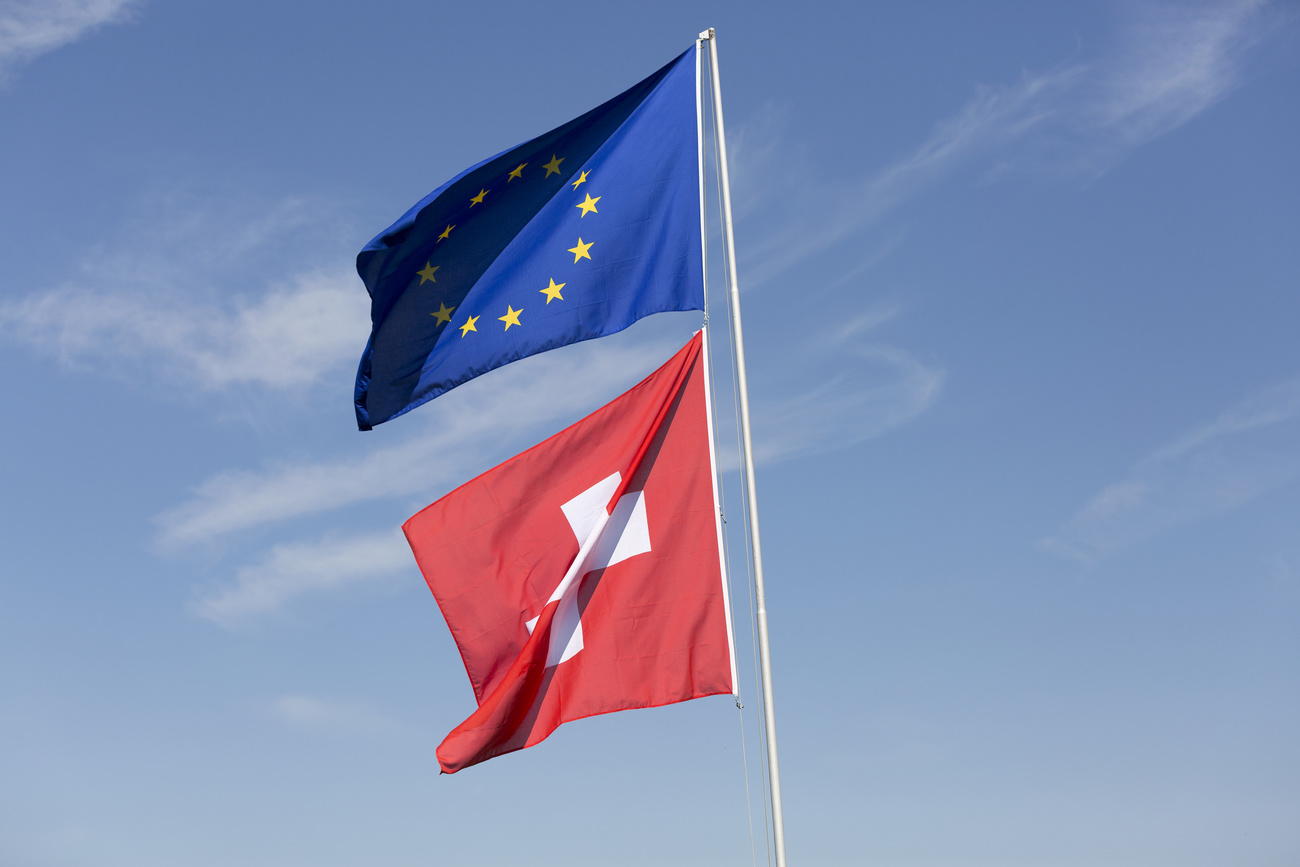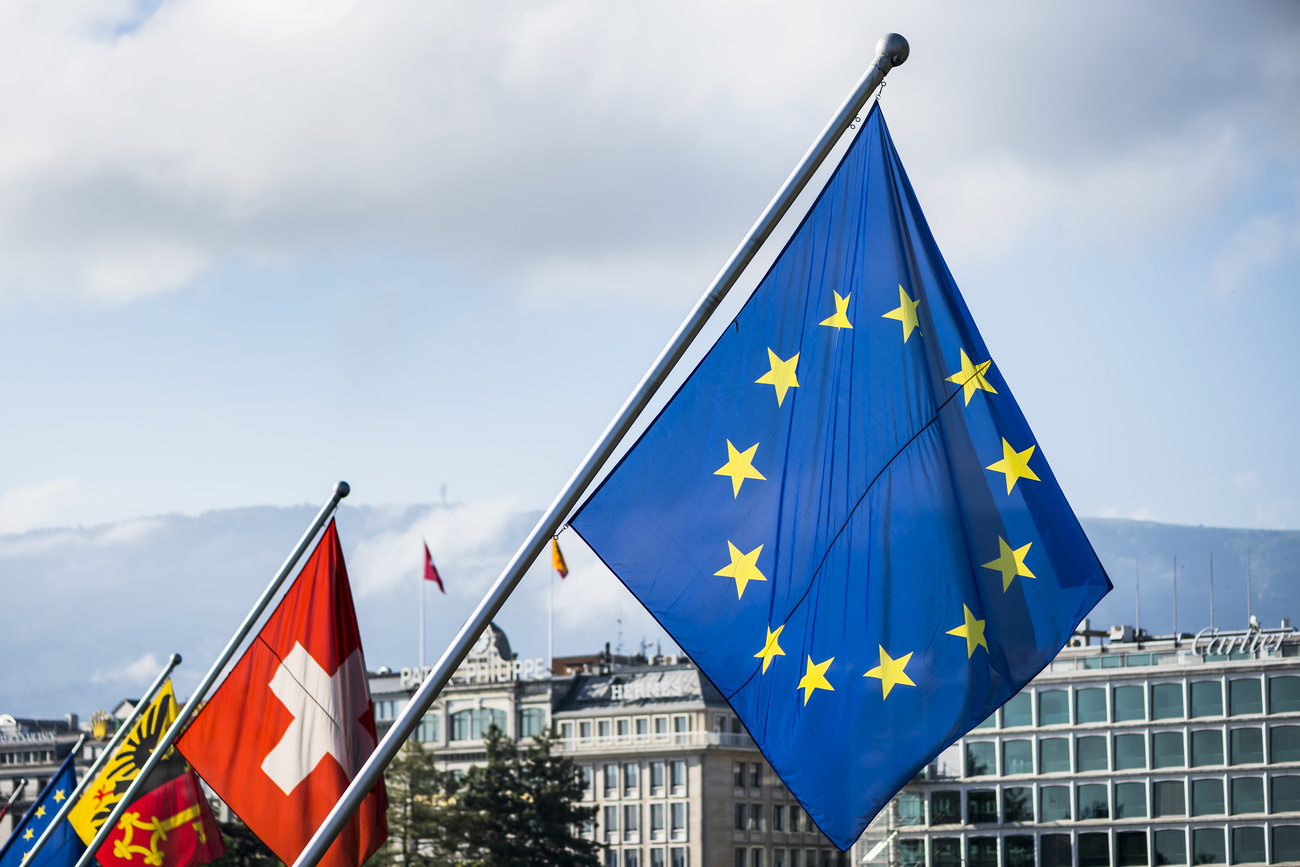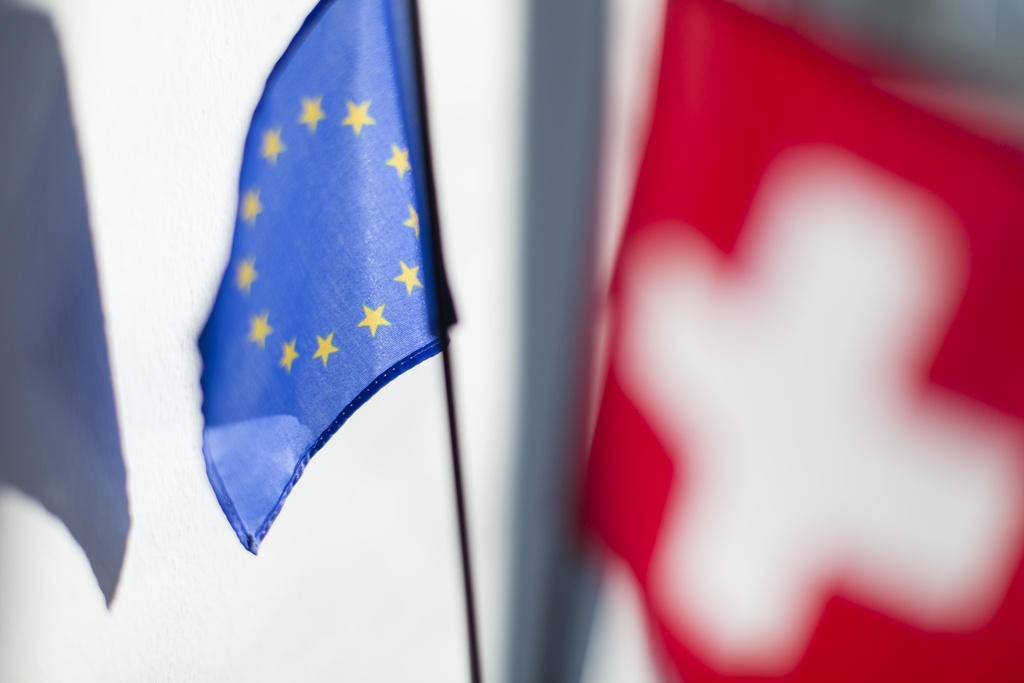‘Switzerland could lose competitiveness in research and innovation’

The abrupt end to negotiations over a framework agreement with the European Union left many unanswered questions about Switzerland’s future, including funding for scientific research and university exchanges. The head of the Swiss Federal Institute of Technology in Lausanne (EPFL) says the Alpine country’s reputation as an international research hub hangs in the balance.
The failure of the negotiations over a framework agreement puts at risk Switzerland’s participation in the EU’s €100-billion flagship research programme, Horizon Europe. Switzerland currently receives the second-highest share of funds of any state associated with Horizon Europe, and two-thirds of that goes to universities.
With the level of Swiss access to Horizon Europe already uncertain before the failure of EU negotiations, EPFL President Martin Vetterli says Switzerland is now entering a very delicate phase that will determine its future ability to research and innovate.
Although the negotiations on the institutional agreement had nothing to do with Swiss-EU research cooperation, Brussels could respond politically to Bern’s ‘no deal’ by denying it access to its innovation funding or by deciding to integrate Switzerland as a ‘third country’, thus effectively cornering the Confederation.
Martin Vetterli is a researcher, teacher and expert on the Swiss education and research landscape. He was appointed president of the Swiss Federal Institute of Technology (EPFL) in Lausanne in 2017. He is also a full professor at the EPFL’s Audiovisual Communications Laboratory.
SWI swissinfo: Did you expect the framework agreement would fail?
Martin Vetterli: [laughs] Of course, everyone expected it.
SWI: Even though the subject of the negotiations was Swiss access to the EU’s single market, there are concerns that the failure to reach an agreement will affect Switzerland’s ability to do research, innovate and attract talent. Is that the case?
M.V: Legally the two issues are not linked, because the framework agreement does not have to do with research cooperation, but politically there are links. So there is a risk that Switzerland will not be able to participate in the Horizon Europe [research funding] programme, and the European research competition.
This would be a great disadvantage for Switzerland because the “Champions League” of research is in Europe, from Horizon Europe to the European Innovation Council to the Quantum Flagship and programmes related to space research. If we were to be cut off from these initiatives, there would be a real risk of losing competitiveness.
SWI: To what extent does Switzerland risk losing attractiveness for foreign students?
M.V: Certainly, student exchange programmes [such as the Erasmus program, with which Switzerland is associated, and the ErasmusPlus program, which Switzerland is currently negotiating] could also be affected by the current situation. Not only that, but we might even lose attractiveness for researchers from Switzerland and the rest of the world, as happened in the UK after Brexit [according to a study, there has been a 30% increase in the number of British citizens migrating to EU countries after the Brexit vote]. So we hope that Switzerland will be able to negotiate well in this delicate phase.
SWI: Is there a risk that Europe will shut the door in Switzerland’s face?
M.V: This risk exists. Even if the research dossier is separate from the commercial dossier related to the single market, care must be taken that the outcome of the latter does not affect the former. And this could happen.

More
Swiss-EU relations and research: what’s next?
SWI: What does Switzerland have to lose, versus the EU?
M.V: Everyone comes out the loser when you give up a collaboration that works. Take the example of vaccines. Moderna is a US company that has an agreement with Lonza, in Switzerland, to produce its vaccine, which is then bottled in Spain. Imagine what would have happened if there had been barriers between the countries. We simply would not have had the vaccines. Moving forward on key issues, such as vaccine development, production and distribution, and the fight against global warming, requires countries to work together. However, I like to describe Switzerland’s position with this image: with the breakdown of the framework agreement negotiations, Europe has shot itself in the big foot with a small gunshot, but Switzerland has shot itself in the small foot with a big gunshot.
SWI: What could be the immediate and concrete consequences of a possible EU divorce from Switzerland in terms of research and innovation cooperation?
M.V: For 2021, the cards have already been dealt and what has been decided will remain valid. The uncertainty is over Horizon Europe. As far as we are concerned, the consequences could be very concrete because EU funding makes up 6-7% of the EPFL’s budget.
Membership in the Horizon Europe program is usually formally determined by Swiss parliament, which also votes on the fee to be paid to the EU for participation. If we were to lose European funds, the federal government would have figure out how to replace them.
SWI: How did EPFL students and researchers react to the framework agreement’s failure?
The outcome was in the air. Everyone is wondering whether it will still be possible to participate in major research programs.
SWI: And if the answer is no, will it still be possible for Switzerland/Europe to compete technologically with giants like the US and China?
M.V: The blocs currently competing for technological hegemony are North America, Asia and Europe. Europe can hold off the competition only with cutting-edge programs like Horizon Europe. If Switzerland remained an independent observer, this would certainly not strengthen the position of the EU.

In compliance with the JTI standards
More: SWI swissinfo.ch certified by the Journalism Trust Initiative












You can find an overview of ongoing debates with our journalists here . Please join us!
If you want to start a conversation about a topic raised in this article or want to report factual errors, email us at english@swissinfo.ch.